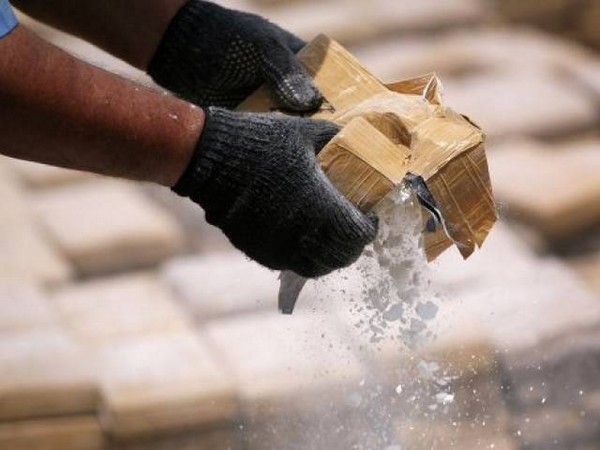Despite counter measures, drug trafficking from Afghanistan-Pak reached 'new heights': Think-tank
More than half of the Afghan-produced opium is converted into heroin in Pakistani laboratories before being smuggled out to markets in Europe, Africa and the Indian sub-continent, a Hyderabad-based think-tank has said in a report, adding that the drug trafficking from the said Asian countries has been "growing by leaps and bounds" despite best efforts to eradicate it.

- Country:
- India
More than half of the Afghan-produced opium is converted into heroin in Pakistani laboratories before being smuggled out to markets in Europe, Africa and the Indian sub-continent, a Hyderabad-based think-tank has said in a report, adding that the drug trafficking from the said Asian countries has been "growing by leaps and bounds" despite best efforts to eradicate it. "Afghanistan accounts for more than 80 per cent of the world's opium production. More than half of it is converted into heroin in Pakistani laboratories before being smuggled out to world markets, while the rest of it is transported through Iranian and Central Asian routes," read an analysis by Center for Asia Africa Policy Research (CAAPR) on drug trafficking from Afghanistan-Pakistan area.
The analysis, written by CAAPR President Prasad Nallapati, said that the Khalistani terrorist groups, sheltered by Pakistan, are deeply involved in syndicates pushing drugs and weapons across the border with India. It said that the Trump administration does not have any incentive to continue to lead any serious drive to neutralise the drug syndicates in the Afghanistan-Pakistan area -- controlled by the Taliban, the Pakistani military intelligence services and its politicians -- in view of the fact that the US is least exposed to these drug supplies as this market is mainly catered to by drug cartels from Mexico and Colombia.
"With the US fast-tracking its 'peace arrangement' with the Taliban that would allow a short window to slow down its violence to allow American withdrawal, the writing on the wall is clear. The Taliban and its Pakistani masters would be emboldened to further boost opium and heroin production and their trafficking to European, African and Asian markets," the analysis read. The think-tank further said that while prospect of slipping into 'blacklist' has forced Pakistan to adapt some of the Financial Action Task Force (FATF) recommendations, the country still dithers on measures with respect to drug financing and that the pressure must be mounted further on the country until it fully carry out all necessary actions to prevent illicit financing activities.
"Many of the controllers of the drug syndicates in Af-Pak region are known to the US and European intelligence agencies. They need to be designated as offenders under the UN and European sanctions regimes with all their consequences. As some of them hold prominent positions in the armed forces or in government, the sanctions would be an effective deterrent," it read. (ANI)
(This story has not been edited by Devdiscourse staff and is auto-generated from a syndicated feed.)
ALSO READ
INSIGHT-Are Iranian drones turning the tide of Sudan's civil war?
Israel Issues Strong Warning to Iran: Direct Strike Possible in Response to Potential Attacks from Iranian Territory
US transfers thousands of seized Iranian guns, rocket launchers and munitions to Ukraine to defend against Russia
Colombia peace delegation to hold extraordinary meeting with ELN rebels
Colombia's Uribe calls witness tampering case against him political revenge










